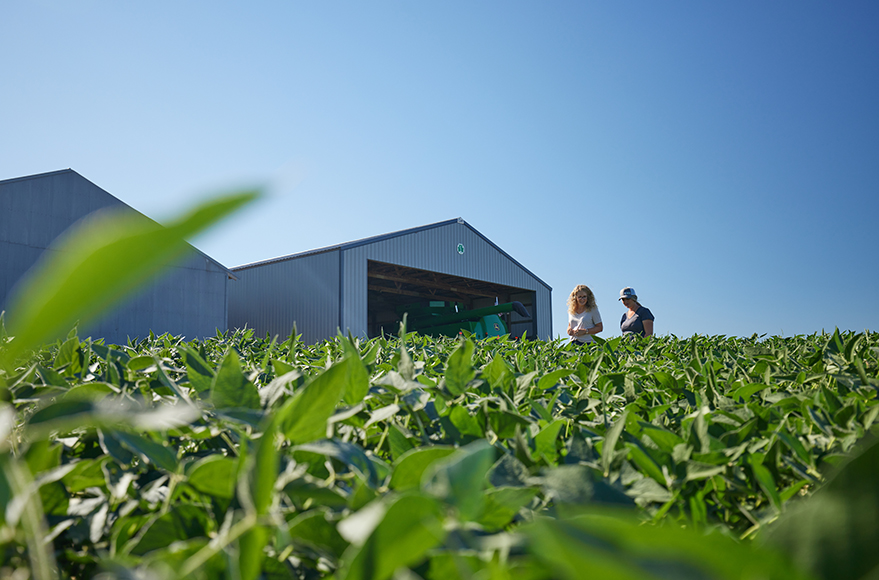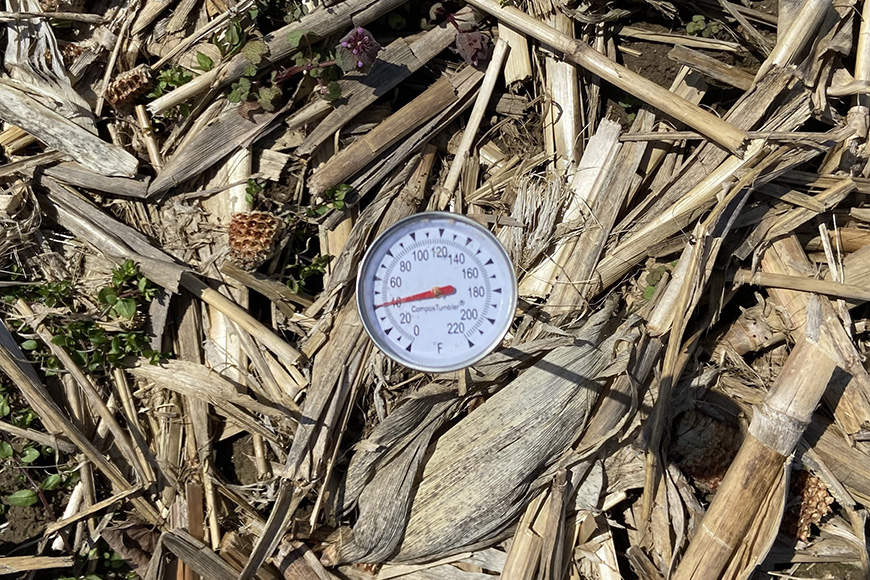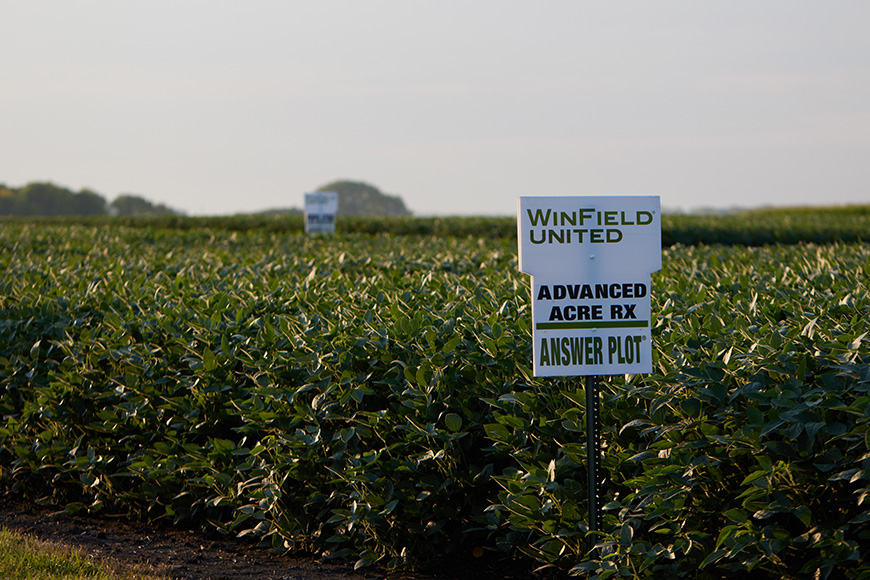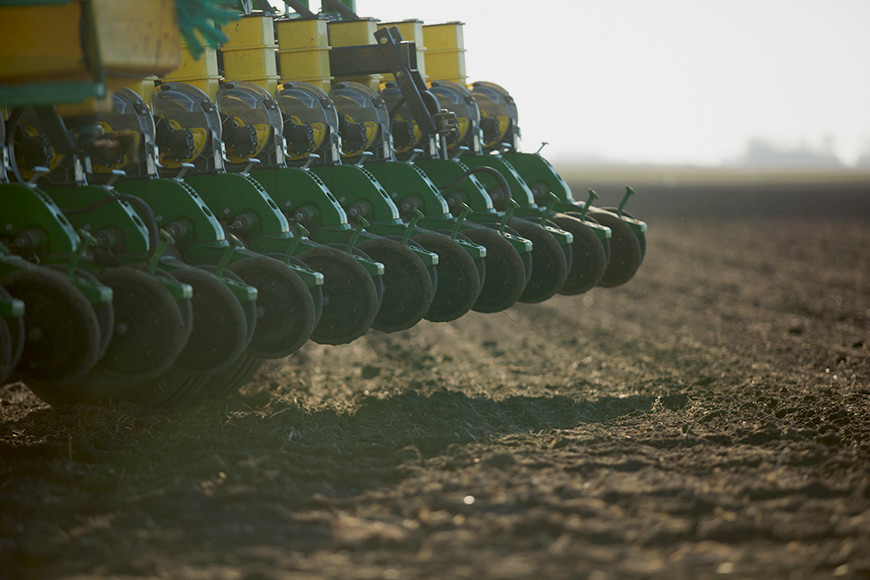How to Get Started With Carbon Programs

The ag industry has been talking a lot about carbon in recent years. Carbon sequestration programs and information are constantly developing and evolving, and keeping up with the latest developments can be challenging. If you’re curious about carbon, the following information may be a useful starting point as you embark on your sustainability journey.
Assess Your Operation
Most carbon programs are centered on quantifying the impact of change. If you want to get started in any carbon program, you should begin by evaluating your operation to find low-risk opportunities to test out new practices. If you have fields where you've already made a change, such as a tillage reduction, you may be eligible for programs that offer payments for those previously implemented practices. If you haven’t made any practice changes, there are other programs tailored for new adopters.
Contrary to popular belief, you don’t have to go full no-till to enroll in a carbon program. Any tillage reduction, including going from conventional tillage to strip-till or making fewer tillage passes, could be eligible for carbon payments. Adding cover crops and managing your nitrogen applications more effectively are other ways you may be able to generate new revenue.
Do Your Research
You’re probably aware that there are many carbon programs available, and they offer different payment structures, recording requirements and contractual terms. Before you sign on the dotted line, be sure you’ve done your research to compare your options. Here are some questions to consider:
Organize Your Data
Carbon program enrollment requires specific data, recordkeeping and reporting requirements. While the data requirements will vary depending on the program, you can typically expect to share the following information, at minimum, to get started with most carbon programs:
After you enroll in a program, you’ll need to keep accurate records of your management practices per your contractual agreements. A digital record can be helpful to organize, move and send data.
Engage Trusted Advisors
With help from your trusted advisors, you can mitigate the risks of changing your production practices and develop a long-term plan for managing them. Your WinField United retailer can help you understand the agronomic challenges you may encounter and can offer solutions for overcoming them. Some retail locations have a conservation agronomist on staff with specialized skills and knowledge in practice change implementation. Use their local expertise and recommendations to build your sustainability strategy over time.
You may incur upfront costs such as equipment or cover crop seed purchases as you make practice changes. Your WinField United or Truterra retailer can help guide you through incentives or funding opportunities that can help subsidize those costs.
Make Small Changes
When you’re ready to make practice changes, start small. Begin by planting some cover crop test strips or pick a couple of easy-to-manage fields to try out a new practice. Work closely with your trusted advisor to explore programs that may help you implement more sustainable practice changes. For example, your WinField United retailer may offer the Advanced Acre® Rx Impact Rx™ program, which can help you mitigate risk as you adjust your nitrogen management plan.
The Truterra Advantage
Whatever practice changes you’re evaluating, be sure they will be agronomically and economically beneficial for the future. Truterra programs offer some of the most farmer-friendly in the industry with flexible terms that give you more freedom to farm your way. Here are a few of the benefits that Truterra programs offer.
There are many carbon programs out there. Take the time to do your research and work with your trusted advisors to evaluate your options. If there aren’t programs that match your goals today, that doesn’t mean there won’t be one in the future. Your WinField United retailer can keep you informed and help you plan so you’re ready for the right carbon market opportunity.
All photos are either the property of WinField United or used with permission.
© 2023 WinField United. Important: Before use always read and follow label instructions. Crop performance is dependent on several factors many of which are beyond the control of WinField United, including without limitation, soil type, pest pressures, agronomic practices and weather conditions. Growers are encouraged to consider data from multiple locations, over multiple years and to be mindful of how such agronomic conditions could impact results. Advanced Acre, Impact Rx and WinField are trademarks of WinField United. All other trademarks are the property of their respective owners.
Assess Your Operation
Most carbon programs are centered on quantifying the impact of change. If you want to get started in any carbon program, you should begin by evaluating your operation to find low-risk opportunities to test out new practices. If you have fields where you've already made a change, such as a tillage reduction, you may be eligible for programs that offer payments for those previously implemented practices. If you haven’t made any practice changes, there are other programs tailored for new adopters.
Contrary to popular belief, you don’t have to go full no-till to enroll in a carbon program. Any tillage reduction, including going from conventional tillage to strip-till or making fewer tillage passes, could be eligible for carbon payments. Adding cover crops and managing your nitrogen applications more effectively are other ways you may be able to generate new revenue.
Do Your Research
You’re probably aware that there are many carbon programs available, and they offer different payment structures, recording requirements and contractual terms. Before you sign on the dotted line, be sure you’ve done your research to compare your options. Here are some questions to consider:
- Are you committed to maintaining sustainable practices for the foreseeable future?
- How long is the contract term?
- How long must you continue to report following a practice change?
- What are the payment terms, and how will payments be calculated?
- Are you locked into compensation at a specific price, or can you take advantage of market upsides?
- Who owns your farm data? Who has access to it?
Organize Your Data
Carbon program enrollment requires specific data, recordkeeping and reporting requirements. While the data requirements will vary depending on the program, you can typically expect to share the following information, at minimum, to get started with most carbon programs:
- Field boundaries
- Multiple years of historical farm management data (production plans, planting dates, spray records, harvest data, cover crops, etc.)
- Consent for soil sampling may be required for some programs
After you enroll in a program, you’ll need to keep accurate records of your management practices per your contractual agreements. A digital record can be helpful to organize, move and send data.
Engage Trusted Advisors
With help from your trusted advisors, you can mitigate the risks of changing your production practices and develop a long-term plan for managing them. Your WinField United retailer can help you understand the agronomic challenges you may encounter and can offer solutions for overcoming them. Some retail locations have a conservation agronomist on staff with specialized skills and knowledge in practice change implementation. Use their local expertise and recommendations to build your sustainability strategy over time.
You may incur upfront costs such as equipment or cover crop seed purchases as you make practice changes. Your WinField United or Truterra retailer can help guide you through incentives or funding opportunities that can help subsidize those costs.
Make Small Changes
When you’re ready to make practice changes, start small. Begin by planting some cover crop test strips or pick a couple of easy-to-manage fields to try out a new practice. Work closely with your trusted advisor to explore programs that may help you implement more sustainable practice changes. For example, your WinField United retailer may offer the Advanced Acre® Rx Impact Rx™ program, which can help you mitigate risk as you adjust your nitrogen management plan.
The Truterra Advantage
Whatever practice changes you’re evaluating, be sure they will be agronomically and economically beneficial for the future. Truterra programs offer some of the most farmer-friendly in the industry with flexible terms that give you more freedom to farm your way. Here are a few of the benefits that Truterra programs offer.
- Look-back contracts that allow you to take advantage of fair market prices each season instead of being locked in at a set price for the future.
- A five-year reporting requirement, which is much less than other carbon programs.
- Data. You keep ownership of your farm’s information.
- Upfront payment estimates are provided before a complete data profile is collected.
- Receive full program payment upon data verification in the year you contract.
- Digital tools help you organize and manage your data.
- Boots-on-the-ground support and guidance from your WinField United retailer.
There are many carbon programs out there. Take the time to do your research and work with your trusted advisors to evaluate your options. If there aren’t programs that match your goals today, that doesn’t mean there won’t be one in the future. Your WinField United retailer can keep you informed and help you plan so you’re ready for the right carbon market opportunity.
All photos are either the property of WinField United or used with permission.
© 2023 WinField United. Important: Before use always read and follow label instructions. Crop performance is dependent on several factors many of which are beyond the control of WinField United, including without limitation, soil type, pest pressures, agronomic practices and weather conditions. Growers are encouraged to consider data from multiple locations, over multiple years and to be mindful of how such agronomic conditions could impact results. Advanced Acre, Impact Rx and WinField are trademarks of WinField United. All other trademarks are the property of their respective owners.





